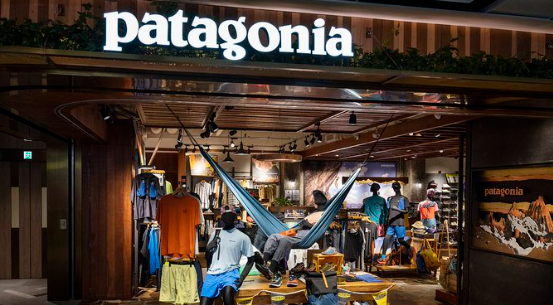It is an easy way to downsize staff that a company no longer can afford, or wants. Which is what many employees claim. When you create a life in an area and your job forces a move, companies know many will not go. Instant downsizing.
Patagonia, the sustainable outdoors brand, has informed 90 of its U.S.-based customer experience (CX) team members that they must either relocate to designated hub cities or leave their jobs. The announcement came during a town hall meeting where employees were given until Friday to decide.
START PACKING: Patagonia told its remote employees that they must relocate or risk losing their jobs. https://t.co/GfyUNesY4P pic.twitter.com/BMBGvJgnmA
— Fox News (@FoxNews) June 29, 2024
The CX team, responsible for handling customer inquiries remotely, received the directive via email and text, followed by a town hall led by executives Amy Velligan and Bruce Old. Patagonia plans to transition to a hub-based model, requiring employees to live within 60 miles of one of seven hub cities: Atlanta, Salt Lake City, Reno, Dallas, Austin, Chicago, or Pittsburgh.
Those opting to relocate are offered $4,000 for moving expenses and additional paid time off, with a deadline of September 30 to make the move. Employees unwilling or unable to relocate will be offered a severance package.
Some affected employees expressed feeling akin to being laid off, despite the generous severance terms. They cited disappointment with the company’s shift away from its previous ethos, suggesting a departure from founder Yvon Chouinard’s principles of employee well-being and environmental stewardship.
Patagonia gives staff three days to agree to relocate across the US or leave the company as it announces major restructure https://t.co/4e9IZidA2w pic.twitter.com/MQoTiB0mjA
— Daily Mail US (@DailyMail) June 28, 2024
Patagonia defended its decision as necessary for fostering a cohesive team culture and addressing longstanding concerns about disconnection among CX workers. The chosen hub cities were selected based on existing community ties and retail presence, with considerations such as cost of living and operational needs factored into the decision-making process.
The move has sparked criticism from employees who feel the company’s priorities have shifted since its transition to a nonprofit model focused on environmental activism. Despite its reputation for sustainability and ethical business practices, some now view Patagonia as emblematic of corporate interests prioritizing profit over employee welfare.
Patagonia tells 90 staff they have to move (with $4k relo) or quit. They have three days to decide.
Why the sudden RTO? The company says the quiet part out loud: We overhired.https://t.co/0iQ0o5beLt pic.twitter.com/Qprfi3RwUY
— Meghan Morris (@MeghanEMorris) June 28, 2024
- Patagonia has instructed 90 U.S.-based customer service employees to relocate to designated hubs or leave their jobs by a specified deadline.
- The restructuring aims to centralize operations and enhance team cohesion through regular in-person meetings and training sessions.
- Employees not relocating are offered a severance package, sparking mixed reactions among staff who feel akin to being laid off despite the package’s generosity.
- Critics argue that Patagonia’s shift from its socially responsible image under founder Yvon Chouinard reflects a trend prioritizing operational efficiency over employee welfare.
- Founded in 1973, Patagonia remains influential in sustainable outdoor apparel but faces scrutiny over recent corporate decisions impacting its workforce.
Lap Fu Ip – Reprinted with permission of Whatfinger News



